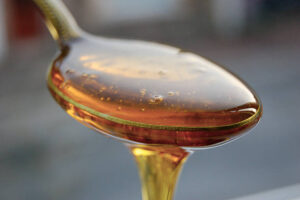As we age, our immune system naturally weakens, making infections more dangerous. One of the most serious threats is pneumonia, which can be life-threatening for seniors. Fortunately, the pneumococcal vaccine for seniors offers vital protection, reducing risks and helping older adults stay healthy and active.
Understanding the Pneumococcal Vaccine
The pneumococcal vaccine is designed to defend against infections caused by the Streptococcus pneumoniae bacteria, which can lead to pneumonia, bloodstream infections, and meningitis. While younger adults often fight off these infections without serious consequences, seniors face higher complications due to weaker immunity or pre-existing conditions.
Types of Pneumococcal Vaccines
- PCV13 (Prevnar 13): Protects against 13 strains of pneumococcal bacteria and is often the first shot recommended for adults over 65.
- PPSV23 (Pneumovax 23): Covers 23 strains and is usually given after PCV13, providing broader protection for seniors.
Benefits of Getting Vaccinated
The benefits of the pneumococcal vaccine for seniors extend far beyond avoiding hospital visits. Here’s why experts strongly recommend it:
- Reduced Risk of Severe Pneumonia: Seniors vaccinated have a significantly lower chance of contracting serious pneumonia (CDC, 2023).
- Lower Hospitalization Rates: Vaccinated adults are less likely to require intensive care for pneumococcal infections.
- Protection Against Complications: The vaccine helps prevent bloodstream infections, meningitis, and other life-threatening complications.
- Peace of Mind: Families feel reassured knowing their loved ones are safeguarded against a potentially deadly infection.
Vaccination Schedule for Seniors
Proper timing is key to maximizing protection. Generally, the schedule for adults 65 and older is as follows:
- Receive PCV13 first (if not previously given).
- Follow up with PPSV23 at least 8 weeks later, though some guidelines recommend 1 year for certain conditions.
- Booster shots may be considered for seniors with chronic illnesses or immunocompromised conditions.
Who Should Prioritize the Vaccine?
- Seniors with chronic diseases like diabetes, heart disease, or lung conditions.
- Older adults with weakened immune systems due to medications or illnesses.
- Anyone above 65 who has not received the vaccine previously.
Safety and Side Effects
The best pneumonia vaccine for seniors is considered very safe. Most side effects are mild and temporary, including:
- Redness or swelling at the injection site
- Mild fever or fatigue
- Headache or muscle aches
Serious side effects are extremely rare. Doctors carefully screen patients before vaccination, ensuring safety even for seniors with pre-existing conditions.
FAQs
Q1: How long does the pneumococcal vaccine last?
The immunity from the vaccine varies, but protection can last 5–10 years. Your doctor may recommend boosters based on your health status.
Q2: Can seniors receive both PCV13 and PPSV23?
Yes. Typically, PCV13 is administered first, followed by PPSV23 after an interval of several weeks to a year, depending on medical guidance.
Q3: Are there any serious risks associated with the vaccine?
Serious complications are extremely rare. Most seniors only experience mild, short-term side effects like redness or mild fever.
Q4: Can I get the vaccine at home?
Absolutely. Many trusted services now provide home vaccination for seniors, offering safety and convenience without hospital visits.
Final Thoughts
For seniors, the pneumococcal vaccine is more than just a shot—it’s a shield against serious, potentially life-threatening infections. Following the recommended schedule, understanding safety, and choosing convenient options like home vaccination services can make the process stress-free. Protecting your health or that of a loved one has never been easier or more essential.





